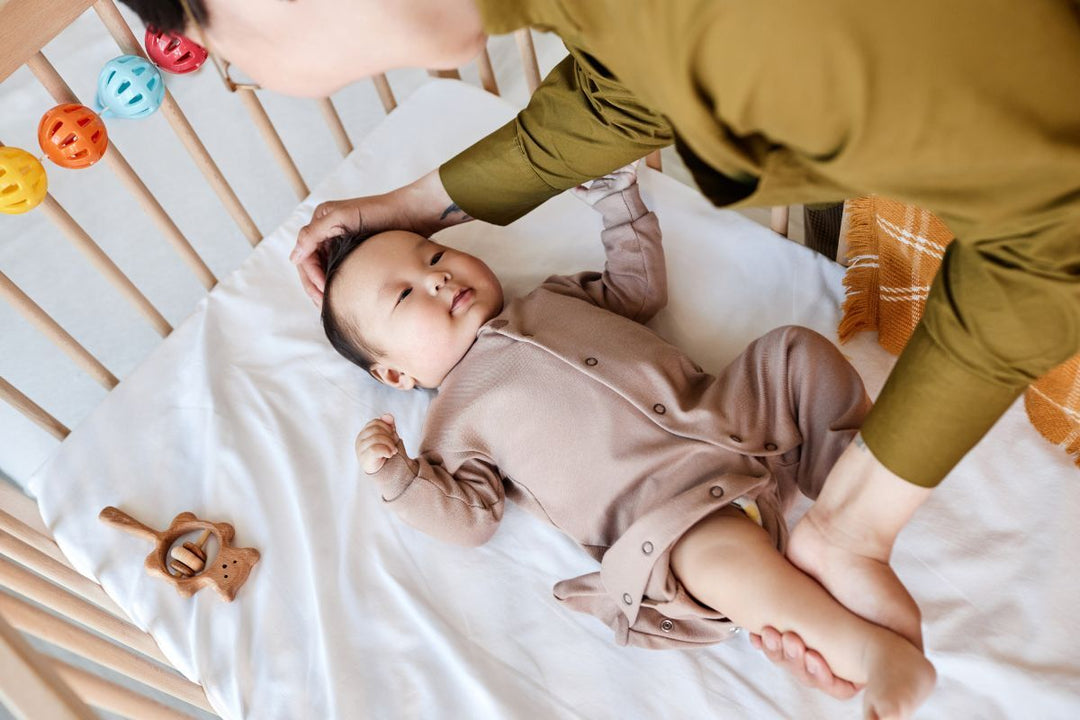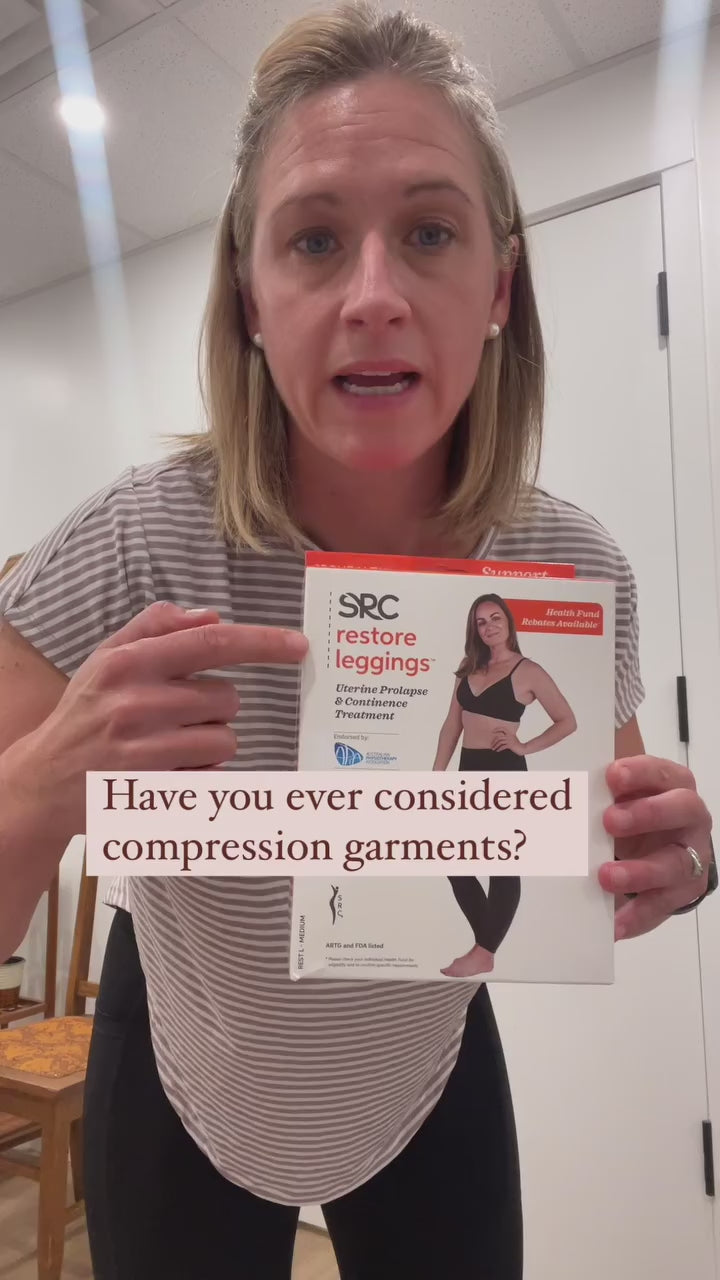I never thought I'd be writing about menopause. But here I am, sharing my journey because, honestly, men need to understand this better. When my wife started showing early signs at 33, we were both lost. If you’re a woman reading this, consider sharing it with your male partner—it might help him understand what you’re going through and how he can support you. Menopause isn’t just a “women’s issue,” it impacts relationships, families, and daily life. The more we know, the better we can navigate it together.
Every doctor brushed it off, saying, "You are too young.” But with menopause running early in her family, we knew something was up. Doctors asked her about stress and depression, offering her antidepressants and “the pill,” which actually made her feel worse.

Her grandmother and mother both experienced menopause early, becoming fully menopausal by 40. It wasn’t until years later that we finally began getting some answers. Now, at 40, she’s in the midst of navigating hormone replacement therapy (HRT) to help with her symptoms of menopause, with all the trial and error that comes with it.
What I’ve learned through this journey is that menopause isn’t just something that happens to women—it affects relationships, too.
From menopause mood swings to sleepless nights, it’s been tough watching someone I love go through something so challenging, feeling powerless at times to make it better. But I’ve also realised that with understanding, patience, and effort, this phase can bring you closer together as a couple.
If you’re reading this, you’re probably in a similar place—trying to figure out what’s happening and how you can help. I’ve written this guide to share what I’ve learned and help other men understand how menopause affects relationships and what you can do to support your wife going through menopause.
What is Menopause and How Does It Affect Women?
Menopause is a natural biological process that marks the end of a woman's reproductive years. It occurs when the ovaries stop releasing eggs and significantly reduce the production of reproductive hormones, particularly estrogen and progesterone. For most women, it starts in their 40s or 50s, but for some, like my wife, it can begin much earlier. Menopause is not an illness and is a natural part of aging, but it can cause various physical and emotional changes, some of which may require attention and management.
The Stages of Menopause
As women age, the number of eggs in their ovaries decrease, and the production of hormones that stimulate their menstrual cycle declines. Understanding the stages of menopause—when it starts and what happens in the body during each period—will help you know what to expect and how you can help your partner with their symptoms.

1. Perimenopause
Perimenopause happens three to five years before menopause and can last for several months or years. During this stage, the estrogen and progesterone levels begin to fluctuate, which can commonly cause irregular menstrual cycles and other menopausal symptoms.
2. Menopause
Menopause marks the period when a woman hasn’t had a period for 12 consecutive months. Women in their menopausal stage can no longer be pregnant as their ovaries no longer release eggs.
3. Postmenopause
Postmenopause starts after a woman’s last period. While most symptoms ease up during this period, women can experience mild menopausal symptoms for several years. They are also at an increased risk for osteoporosis and heart disease due to low estrogen levels.
Common Symptoms Women Experience
Not everyone experiences the same symptoms of menopause, but they can vary widely in both intensity and duration. What men should know about menopause is that, while some women may have mild symptoms that are barely noticeable, others may experience more profound effects that significantly affect their daily lives.
Physical Symptoms:
-
A sudden feeling of warmth in the face, neck, and chest
-
Red, blotchy skin
-
Rapid heartbeat
-
Sweating, especially on the upper body
-
A chilled feeling when the hot flush ends
-
Feelings of anxiety
-
Hot flashes, which are episodes of sudden feeling of warmth in the upper body and are usually most intense over the face, neck, and chest
And menopause hot flashes can happen 1 to 10 or more times a day! They can last from 30 seconds to 5 minutes, which can start a few months or years before a woman’s period stops. In my wife’s case, it started at an unusually early age of 33, and can continue for several years after their last menstruation.
What can menopause hot flashes cause?
Fatigue, irritability, forgetfulness, and disrupted normal functions
Emotional Symptoms:
Menopause mood swings, anxiety, and even depression are common experiences. However, in my wife's case, the depression may have been present as a consequence of menopause, rather than being the underlying cause of her irregular periods and other symptoms.
Hormonal shifts can also significantly impact sexual desire, often leading to a decline that can affect intimacy and relationships. It's worth noting that men experience these challenges too—after all, a billion-dollar industry was built around a little blue pill by Pfizer to address male sexual health. Yet, despite this, discussions about libido, especially among women, remain taboo. While men’s issues in this area are addressed openly and even commercialised, women’s struggles with libido often receive even less attention or acknowledgment. How is that fair? This imbalance reflects a broader societal tendency to sideline women’s health concerns, leaving many women to navigate these changes in silence. It's time to break the stigma and start conversations that normalise and prioritise women’s sexual health.
For years, my wife struggled with menopause fatigue and menopause mood swings, often feeling isolated because no one acknowledged her symptoms. Now that we understand what’s happening, I can approach it with empathy instead of frustration.

How Menopause Affects Relationships
Let me be honest: menopause hasn’t just been hard on my wife—it’s been hard on us. The mood swings hit like a storm, and sometimes, it felt like I couldn’t do anything right. There were days when I thought, “Is this anger directed at me? Am I failing her somehow?”
The more I learned about how menopause affects relationships, the more I realised that her emotions weren’t something I needed to “fix.” Instead, I needed to understand and support her through this transition. For husbands, dealing with menopause means learning to navigate mood swings, emotional changes, and physical symptoms with patience, empathy, and understanding.
Key Challenges We Faced:
-
Menopause Mood Swings and Anxiety: Sudden bursts of anger or sadness were confusing at first, but I learned these were symptoms of menopause and anxiety, not something my wife had control of.
-
Menopause Fatigue and Stress: Her energy levels dropped, making even simple tasks feel exhausting.
-
Changes in Physical Intimacy: Hormonal shifts affected her libido, which sometimes led to feelings of insecurity on my part.
By acknowledging these challenges and working through them together, we’ve been able to strengthen our bond rather than let these changes drive us apart.
How I’ve Learned to Help My Wife Through Menopause
Over the years, I’ve made plenty of mistakes, but I’ve also learned how to better support my wife. Here are some things that worked for us:
1. Be Patient and Empathetic
Sometimes, different emotions like frustration, stress, sadness, or even anger toward husbands can arise during menopause, and when that happens, it can be easy to take things personally. But I’ve learned to step back, remind myself it’s not about me, and respond with patience.
2. Encourage Open Communication
We’ve created a safe space where she feels comfortable sharing what she’s going through. I make it a point to listen without judgment and ask how I can help.

3. Help Manage Physical Symptoms
From lowering the thermostat during menopause night sweats to encouraging healthy routines, small adjustments have made a big difference.
4. Support Her Emotional Health
I’ve encouraged her to seek professional help when symptoms like menopause and depression or menopause and anxiety felt overwhelming. These actions, though small, have helped us navigate this phase with more ease and understanding.
Taking Care of Myself
What most menopause tips for husbands usually don’t say is that it’s important to prioritise your own mental and emotional wellbeing, too. After all, you can’t pour from an empty cup. Think of it like the instructions on an airplane: when the oxygen masks drop, you’re told to secure your own mask first before helping others. The same principle applies here—taking care of yourself is not selfish; it’s essential. Whether that means carving out time for your hobbies, seeking advice from friends or professionals, or simply finding moments to recharge, prioritising your wellbeing ensures you have the capacity and energy to support your partner effectively. By being at your best, you can offer the patience, understanding, and compassion your partner needs during this transformative phase of life.
-
Educate Yourself: Understanding what husbands need to know about menopause, including common symptoms like hot flashes or fatigue, has helped me approach her experiences with more empathy.
-
Talk to Others: Joining online forums or talking to friends who’ve been in similar situations has been a great source of support.
-
Practise Self-Care: Taking time to recharge has made me a more present and patient partner.
Why Supporting Your Partner Through Menopause Matters
At first, menopause felt like something that was happening to her. But I’ve come to realise that it’s something we’re going through together. Helping your partner manage symptoms like menopausal mood swings or menopause and depression isn’t just about helping her—it’s about strengthening our relationship.
This phase has taught me patience, resilience, and the importance of communication. While challenging, it’s also an opportunity to grow closer and show up for your partner in ways that truly matter.
Final Thoughts
Menopause is a natural transition, but it can feel overwhelming for both partners. By educating yourself about symptoms like menopause hot flashes and menopause fatigue, practising empathy, and offering support, you can help your partner navigate this phase with confidence.
For me, the hardest part has been watching someone I love go through something so difficult. But it’s also been a privilege to stand by her side, learn how to support her and grow stronger as a couple.
If you’re in this phase with your partner, remember it’s not about fixing things. It’s about listening, understanding, and being there every step of the way. Together, you can come out of this stronger and more connected.
Reach Out for Professional Help
If you and your partner need professional support, don’t be afraid to reach out for help. Speaking to a healthcare provider or a therapist can provide valuable guidance during this transition.
Australia: Australian Menopause Society
United Kingdom: British Menopause Society
Canada: Menopause Foundation of Canada













